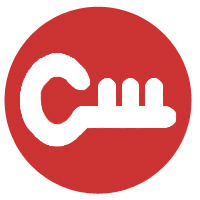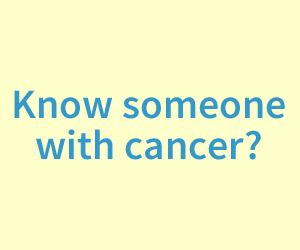Overnight chemotherapy treatment
Some chemotherapy regimens require overnight hospital stays. I had to stay in the hospital for 5 days during my chemotherapy sessions. The first time I went in, I had no idea what to expect, so I want to write about my experience to help those who may be going through something similar. This is based on my experience at a private university hospital.
What to bring:
- a blanket. They provide sheets and thin blankets, but the wards are usually so cold. It's nice to have a fleece blanket or something that is warm.
- ear plugs and eye shades. The rooms are usually double occupancy, so most likely there will be activity even in the wee hours of the night. The ear plugs and eye shades will help you catch a bit of sleep.
- slippers, socks, hat. The hospital usually is quite cold, and it's important to stay warm.
- toiletries. They provide you with basic toiletries (wetwipes, shampoo, mouthwash, toothpaste, toothbrush, kleenex, soap), but do bring your own if you have special needs.
- food. The hospital provides you with 3 meals a day and snacks, but if you have special food needs, there is a refrigerator/freezer and microwave. I like to request both the adult menu and the pediatric menu so I have more choices. Surprisingly the pediatric menu has some better options! The menus need to be turned into the front desk earlier in the day, or even the day before.
- things to help pass time. Laptops are good for accessing the outside world via internet. There most likely will be free wi-fi. Ask the nurse for password. Magazines and books are good. Each bed has it's own TV, so you'll have access to regular and cable channels.
What not to bring:
- extra clothing. They provide gowns that they will usually ask you to change into. It makes it easier for the nurses to examine you and deal with issues with your port or picc line. There is a style of gown that is very good when you have the IV connected to your PICC line/port. It has snap buttons on both arms, which makes it possible for you to take the gown on and off while connected to the IV.
- humidifier. The nurse can help you set up an apparatus that blows out humidified air. The air in the ward is quite dry, so if you have dry mouth, it's best to ask them to set this up for you.
- towels. Bath towels and face towels are provided.
What to expect:
1) Check-in. It may take some time for a bed to be available in the chemo ward. Chemo patients can check-in at the front desk of the cancer center. If there's a wait, the receptionist can give you a pager that will ring when a bed is available. Upon checking in to the chemo ward (in the main hospital), the nurses will go through a long questionaire with you about your medical history, symptoms, medications you may be on.
2) Room. The room is double occupancy. There is a curtain separating the room into two. There is a shared bathroom with a toilet and shower, only for patients' use. Guests can use bathrooms that are right outside of the chemo ward. There is a closet for each patient. By each bedside, there is a bedside table and usually an armchair. If you have a friend/family staying with you overnight, you can request a fold-away bed or an armchair that converts into a bed. We found the former is more comfortable and convenient. There is a TV for each patient.
3) Pre-medications. Usually before the administration of chemo, pre-medications are given to prevent nausea and other side effects from chemo.
4) Chemo. The chemo drugs are carefully prepared by the pharmacists and double checked by the nurses. The nurses have a system where 2 nurses need to verify the information on the bag of chemo with the prescription given to the patient. They also check the flow rate of the chemo. You can also check this for yourself by checking how fast the chemo is dripping. Once you are hooked onto the IV, you will need to move the IV stand with you where ever you go - to the bathroom, in the shower, walking around the hallways. Some regimens of chemo require large amounts of fluids at the same time to help flush out the chemo. This will cause you to go to the restroom a lot. It's important that you go to the restroom frequently, to help get the chemo out of your system. Some chemo medications damage the bladder.
5) Blood draws, vital signs. The nurse will come once a day to get your blood sample. This usually happens around 5-6am. The nurses will also check your vital signs a few times a day (temperature, blood pressure) and weigh you to see how much water you're retaining.
6) Doctors. Usually the doctor will see you once a day. It's best to be prepared to let him/her know whether you experienced any pains or discomfort. After seeing you, the doctor determines whether you should have a certain medication to help your symptoms.
7) Nurses. The nurses do ~12 hour shifts. You will be assigned to a nurse. Usually each nurse has 3-4 patients to take care of. If you have any discomfort or needs, you can call for the nurse with a call button. Also, the nurse keeps track of the volume you urinate. After going to the restroom, you need to call for your nurse. He/She will then come and check the volume before helping you flush it. Some nurses put a disposable blanket over the toilet before flushing, some even wear a mask.
8) Shower. You can take a shower even with a PICC line connected to the IV. I'm not sure about this if you have a port. With the PICC line, you can ask them for a plastic arm guard - a sealed plastic rectangle with two holes on each end. The IV line will be protruding from the arm guard, but if you keep your hand up, that will minimize the water going into your PICC line area. It's ok if a little bit of water goes in, just make sure to dry the area of the PICC line well after you're done with the shower.
9) Check-out. At the end of your stay in the hospital, the nurse will go through the discharge paperwork with you. It's good to request a print-out of all the lab reports so you have them for your record. The nurse will also go through with you medications you may need (anti-nausea) when you're at home.



